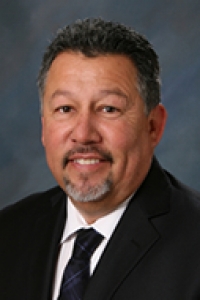This story has been updated with comment from the Idaho Republican Party.
COEUR D’ALENE — As school board members wander the halls of the Coeur d’Alene Resort for the annual convention of the Idaho School Boards Association this week, many are reeling from fresh election results back home.
Trustees faced their first round of November elections Tuesday, sharing ballots with mayoral and city council candidates.
While the November elections resulted in higher voter turnout, as expected, the move didn’t necessarily drive more voter choice. And trustees say the November elections raise huge hurdles for candidates and the newly elected.
“Not a surprising trend”
Karen Echeverria, the ISBA’s executive director, said she doesn’t think moving the elections to November had too much of an impact on who ran for school boards.
The number of contested school board races was relatively similar to what Echeverria said she would expect in a May election, as was the ratio of incumbents who kept their seats.

An Idaho Education News analysis of the school board races shows that of the 274 school board terms expiring, only 62 races were contested.
“One of the goals of moving the elections to November was the hope that we would have more candidates running for those seats,” Echeverria said. “We did not see that.”
Results of those contested races were about half and half in favor of the incumbent. In all, 23 incumbents kept their school board positions on Tuesday, EdNews reported, while 20 incumbents lost.
Mike Vuittonet, a longtime member of the West Ada school district, was among the incumbents who lost.
Vuittonet called the November election a “dynamic shift” for him. For the first time in almost two decades, he found himself having to compete with well-funded mayoral and City Council campaigns to try and get his messaging in front of voters.
“Getting put into this election basically relegated us to the edge of the whole election process,” Vuittonet said. “…As trustees, we’ve never had to compete in that kind of arena.”
Vuittonet doesn’t have all the answers as to why he lost, and he says he does not have “sour grapes” about it. But he has been thinking about the outcome quite a bit.
Perhaps voters were discontent, he said. Maybe the large voter base had something to do with it, since voters who turn out for spring school board elections are likely engaged with the schools and motivated to participate. But voters in a larger November race might not have that same familiarity with the district, especially if the school board race isn’t a dominant part of the election narrative. Vuittonet also wonders if levy and bond fatigue were motivating factors for some voters.
“If the only thing they measure is how they’re getting taxed, what’s the likely outcome?” Vuittonet said. “That guy’s been taxing me. They’ve been raising my taxes. Get him out.”
Regardless of what role the November elections played on election outcomes, Echeverria said, the move seemed to confuse ISBA members.
“We fielded a lot more questions about it,” she said. “I think from ISBA’s perspective, we’re just going to have to do a lot more educating.”
Politics in nonpartisan races
Moving the elections to November on odd-numbered years was a compromise between ISBA and the Legislature. The ISBA didn’t want the nonpartisan school board races on the same ballot with presidential or gubernatorial races, to shield trustee elections from partisan politics.
However, emails sent from the Republican Party this year and provided by ISBA show that school board races were not necessarily insulated from politics. One email advertised that the Republican Party had researched the party affiliation of school board candidates and would provide party affiliation to anyone who requested it.
“For too long, Democrats have been sneaking into important positions of power by running in non-partisan offices,” state GOP Chairman Raul Labrador wrote in one email. “It’s tremendously important that Republicans turn out and elect conservatives who believe in accountability, lower taxes and less spending.”
Frank Terraferma, executive director of the Idaho Republican Party said in an email that the party supports “giving Idaho voters the most complete picture about the candidates running for local office.”
“Informed voters are the best voters!” he wrote.
Echeverria called the emails “unfortunate.”
“While (school board races are) supposed to be nonpartisan, I think the Republican Party was looking to make them partisan,” she said. “That’s unfortunate because we really do want these races to be nonpartisan.”
Like ‘drinking from a firehose’
Ralph Binion, of the Mountain Home School District, and Toni Brinegar of Vallivue, are worried about what the switch means for new trustees. Because trustees are now elected in November, they’ll start work in January — right in the middle of school-year chaos.
“Being a new school board member is like drinking from the firehose for the first year — and that’s when you start in July,” Brinegar said.
Starting in January, Binion said, means trustees will be thrust into contract negotiations and legislative discussions almost immediately.
“You don’t know anything as a new trustee, really,” Binion said. “You’re just getting your feet wet in January, and everything starts to really hit.”
While both trustees are opposed to the new elections cycle, neither of them have had to face the repercussions just yet. Vallivue had three unchallenged incumbents in the race this year, Brinegar said.
“For our district, it’s fine,” she said. “But I feel a lot of sadness for those people who are going to start in January.”
